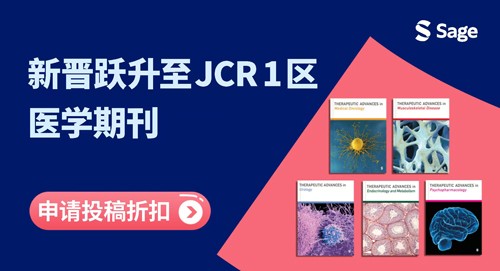-
Does hearing “and” help children understand “or”? Insights into scales and relevance from the acquisition of disjunction in child Romanian J. Child Lang. (IF 1.7) Pub Date : 2025-07-18 Adina Camelia Bleotu, Mara Panaitescu, Gabriela Bîlbîie, Alexandre Cremers, Andreea Cristina Nicolae, Anton Benz, Lyn Tieu
Children are known to derive more implicatures when the required alternative is made salient through contrast or when it is made contextually relevant through a story or a Question Under Discussion. We investigated the exclusivity implicature of three disjunctions (sau “or”, sau… sau, and fie…fie “either…or”) in child Romanian, an understudied language in the previous literature. Three experiments
-
Parasympathetic and Sympathetic Reactivity and Their Coordination as Antecedents to the Cascade of Children's Callous-Unemotional Traits and Later Psychological Adjustment. Child Dev. (IF 3.8) Pub Date : 2025-07-18 Vanessa T Cao,Patrick T Davies,Morgan J Thompson,Mona El-Sheikh
This study examined whether a mediational cascade involving children's respiratory sinus arrhythmia (RSA) reactivity to a series of cognitive and socio-evaluative stressors, their callous-unemotional (CU) traits, and psychological adjustment was moderated by their cardiac pre-ejection period (PEP) reactivity. Using a multi-method, multi-informant design, 238 mothers and their preschool children (Mage = 4
-
The N2 During Preschool: Temporal Stability and a Test of Bidirectional Effects With Maternal Emotion Characteristics in a White, European-American Sample. Child Dev. (IF 3.8) Pub Date : 2025-07-18 Anahid Akbaryan,Reese C Burkey,Peter J Ramirez,Ashley L Walker,JungWon Choi,Sejal Mistry-Patel,Jennifer L Kling,Rebecca J Brooker
Despite well-documented behavioral changes, the development of neuropsychological substrates underlying inhibitory control remains unknown, hindering understanding of this construct over time. Stability and change in N2, a neural correlate of inhibitory control, and its crosslagged, bidirectional associations with maternal emotion characteristics were examined in 121 preschoolers (59% female, predominantly
-
Use of a Blended Learning Tool to Support the Language and Literacy Development of Elementary English Learners The Elementary School Journal (IF 1.4) Pub Date : 2025-07-16 Nicholas Feroce, Rajendra Chattergoon, Jeannette Mancilla-Martinez
The Elementary School Journal, Ahead of Print.
-
Multimodal Skills, but Not Motor Skills, Predict Narrative and Expressive Pragmatic Skills in Children With Typical Development and Neurodevelopmental Disorders. Child Dev. (IF 3.8) Pub Date : 2025-07-16 Júlia Florit-Pons,Mariia Pronina,Alfonso Igualada,Pilar Prieto,Courtenay Norbury
To see whether communicative-based multimodal skills (compared to non-communicative motor skills) predicted complex language skills, this study examined the predictive power of multimodal and motor skills on narrative and expressive pragmatic abilities across two groups. Participants were children with typical development (N = 88, Mage = 5.34, 48% female) and with neurodevelopmental disorders (N = 51
-
School readiness of dual language learners in Migrant and Seasonal Head Start (MSHS): The role of dominant language of classroom interactions and socioeconomic status Early Child. Res. Q. (IF 3.1) Pub Date : 2025-07-14 Ye Shen, Ji-Young Choi, Yimei Xiong
Children of migrant and seasonal farm workers (MSFWs) represent a highly disadvantaged and understudied population in the U.S., with unique educational and socio-linguistic needs. This study leverages nationally representative data on children of MSFWs attending Migrant and Seasonal Head Start (MSHS) programs to investigate how Spanish-English dual language learners’ (DLLs’) school readiness skills
-
Embodied action enhances conservation reasoning: age and task effects in early childhood Early Child Development and Care (IF 1.0) Pub Date : 2025-07-14 Wenbin Jia, Xianyu Deng, Jie Yang, Ran Wang, Xuanyu Sun, Erping Xiao
-
Teachers’ Perceptions of Their Students’ Digital Citizenship and Practices The Elementary School Journal (IF 1.4) Pub Date : 2025-07-11 Tien Ping Hsiang, Steve Graham, Chuang Wang, Changchun Lin, Yucheng Cao
The Elementary School Journal, Ahead of Print.
-
The Comprehensive Assessment of Theory of Mind (CAT): A Novel Measure of 3‐ to 8‐Year‐Old Children's Theory of Mind and an Evaluation of Mental‐State Scaling Child Dev. (IF 3.8) Pub Date : 2025-07-12 Megan J. Heise, Lindsay C. Bowman
This study describes a novel measure of children's Theory of Mind (ToM) development—called the Comprehensive Assessment of ToM (CAT)—that addresses limitations in existing ToM measures. This behavioral measure includes three–six items each about diverse desires, diverse beliefs, knowledge access, knowledge expertise, false belief, and visual perspective taking, as well as nonsocial representational
-
Home caregiving, early learning and developmental outcomes among preschool-aged children in Fiji Early Child Development and Care (IF 1.0) Pub Date : 2025-07-12 Sally Popplestone, Thach Tran, Annie Crookes, Shazna M. Buksh, Jane Fisher
-
Development and Initial Validation of the Indonesian Child Self‐Regulation Scale Infant and Child Development (IF 2.9) Pub Date : 2025-07-10 Olifa J. Asmara, Alina Morawska, April Hoang, Yulina Eva Riany
Child self‐regulation has been considered a valuable skill that shapes a child's future life trajectory. Parents have crucial roles in its development, making parenting interventions a strategic means to promote child self‐regulation. Nonetheless, there are no available measures of child self‐regulation suitable for assessing outcomes in evaluations of parenting interventions, particularly in non‐WEIRD
-
Spoken or sung? Examining word learning in child-directed speech and in song J. Child Lang. (IF 1.7) Pub Date : 2025-07-10 Mackensie Blair, Lindsay Hawtof, Giovanna Morini
The present study examines whether presenting words in song versus spoken sentences can lead to differences in word learning in 47–50-month-old children. This work extends previous findings on this topic and evaluates whether the location of pitch changes within the song may contribute to how well the words are learned. Using a Preferential Looking Paradigm, 32 children were taught the names of objects
-
Acoustic characteristics of stop consonants in Vietnamese children and adults J. Child Lang. (IF 1.7) Pub Date : 2025-07-10 Tam Minh Nguyen-Phuoc, Sue Ann S. Lee
The current study characterized voice onset time (VOT) and vowel onset fundamental frequency (F0) in the production of three Vietnamese alveolar stops (i.e. /t̪ʰ/, /t/, and /d/) by monolingual Vietnamese children and adults. Eighty Vietnamese children aged 3–7 years and 16 adults aged 22–44 years participated in this study. Unlike speakers of other languages with a three-way voicing contrast, Vietnamese
-
Shifting from parental Engagement to Family Engagement : exploring the role of family in supporting young children’s learning in Wakhan, Tajikistan Early Child Development and Care (IF 1.0) Pub Date : 2025-07-10 Zarina Muminova
-
Caregivers' Perceptions and Practices Regarding Responsive Caregiving and Early Learning in Cajamarca, Andean Peru: A Qualitative Study Infant and Child Development (IF 2.9) Pub Date : 2025-07-09 Kristen Hinckley, Maria Catalina Gastiaburú Cabello, Milagros Alvarado, Dana Charles McCoy, Daniel Mäusezahl, Günther Fink, Sarah Farnsworth Hatch, Nerita Gabriela Quispe Roncal, Natalia Gonzales Eslava, María Luisa Huaylinos Bustamante, Andreana Castellanos, Stella M. Hartinger, Lena Jäggi
Parenting programs around the world target components of the “Nurturing Care Framework” (NCF)—including responsive caregiving and early learning—to improve early childhood development (ECD). However, it is difficult to optimally design culturally relevant programs without knowing how these components align with local cultural beliefs. This study explored how caregivers understand and encourage early
-
Talking About Donor‐Conception: Parents' and Children's Experiences of Origin Storytelling Infant and Child Development (IF 2.9) Pub Date : 2025-07-09 Javiera Navarro‐Marshall
New family structures are emerging with the inception of artificial reproductive technology (ART), and one of these new formations is donor‐conceived families. These families challenge the traditional definition of family but also face challenges in disclosing origins to their children. Developmental psychology has scarce evidence about how these conversations unfold and how families feel about these
-
Developing a Culturally Relevant Executive Function Observation Scale Based on Interviews With Nigerian Preschool Teachers Infant and Child Development (IF 2.9) Pub Date : 2025-07-09 Chika Ezeugwu, Sara Baker
Executive function (EF) measures used with African children heavily depend on task‐based assessments normed in minority world settings. This reliance poses a challenge as it limits the understanding of how children display their EF behaviours within their own culture. Environmental factors including income and parenting are associated with children's EF development. In addition, culture‐specific practices
-
Longitudinal effects of language skills and maternal depression symptoms on problem behaviours in preschool children Early Child Development and Care (IF 1.0) Pub Date : 2025-07-09 Cathy H. Qi, M Lee Van Horn, Rebecca Bulotsky-Shearer, Jenna Futterer, Alexandra Nicole Davis, Almut Klara Zieher, Judith Carta
-
Early nursery attendance and infant neurodevelopment at 1 year of age Early Child Development and Care (IF 1.0) Pub Date : 2025-07-08 L. González-Safont, P. Carrasco, R. Abumallouh, S. Llop, M. Estarlich, M. Rebagliato
-
It’s about Time The Elementary School Journal (IF 1.4) Pub Date : 2025-07-03 Elizabeth A. Davis, James P. Spillane, Christa Haverly, Donald J. Peurach
The Elementary School Journal, Ahead of Print.
-
Exploring the role of early childhood educators’ emotion socialization strategies in the development of young children’s social and non-social play behaviors Early Child. Res. Q. (IF 3.1) Pub Date : 2025-07-04 Tiril Wilhelmsen, Ratib Lekhal, Veslemøy Rydland, Robert J. Coplan
It is widely postulated that caregivers’ emotion socialization strategies support children’s positive socio-emotional functioning with peers. However, this theoretical model has been rarely examined empirically in the context of early childhood education and care (ECEC), despite ECEC being a prominent environment for children to practice peer play (a robust marker variable for social and emotional
-
Children’s simultaneous or successive acquisition of vocabulary and grammar: Evidence from cross-situational learning J. Child Lang. (IF 1.7) Pub Date : 2025-07-04 Wensi Zhang, Padraic Monaghan, Sophie Bennett, Patrick Rebuschat
Recent evidence from cross-situational learning (CSL) studies have shown that adult learners can acquire words and grammar simultaneously when sentences of the novel language co-occur with dynamic scenes to which they refer. Syntactic bootstrapping accounts suggest that grammatical knowledge may help scaffold vocabulary acquisition by constraining possible meanings, thus, for children, words and grammar
-
Emotion socialization and preschoolers’ narrative coherence and school readiness: moderation by executive functioning and gender Early Child Development and Care (IF 1.0) Pub Date : 2025-07-04 Pamela W. Garner, Hideko H. Bassett
-
-
Parental selection of shared reading materials: a scoping review Early Child Development and Care (IF 1.0) Pub Date : 2025-07-02 Simone Salins, Monica L. Bellon-Harn, Sunila John
-
-
Qualitative Research on Infant and Child Development in Majority World Countries Infant and Child Development (IF 2.9) Pub Date : 2025-07-01 Catherine E. Draper
-
What Apps Exist That Can Be Leveraged for Speech and Language Surveillance in Children? A Scoping Review Infant and Child Development (IF 2.9) Pub Date : 2025-07-01 Sam Harding, Lydia Morgan, Sarah Rudd, Yvonne Wren
This scoping review aimed to identify and evaluate apps designed to screen or monitor speech, language, and communication (SLC) development in young children. Early identification and intervention are crucial for children with SLC difficulties, but traditional assessments can be time‐consuming and lack ecological validity. Technological advancements offer potential for more objective and user‐friendly
-
The PRSIST Intervention to Improve Self‐Regulation in Preschoolers: An Adaptation to the Italian Context Infant and Child Development (IF 2.9) Pub Date : 2025-07-01 Costanza Ruffini, Elena Magni, Chiara Pecini, Steven J. Howard
Self‐regulation is the ability to control cognitive, behavioural and social–emotional processes in service of one's goals. In the preschool years, self‐regulation develops rapidly, and during this period, it is influenced by the plasticity of the underlying neurofunctional circuits. Since good early self‐regulation skills favour positive developmental trajectories, numerous interventions have been
-
Parents’ perceptions on young children’s online English learning at home: A mixed-methods study J. Early Child. Lit. (IF 1.3) Pub Date : 2025-07-01 Qiu Chuane, Zhu Rong, M. Monjurul Islam, Ghadah Al Murshidi
This study examines parents’ perceptions and roles in supporting kindergarten children’s English language development through online learning platforms, highlighting the implications for future educational strategies. Utilizing a mixed-methods approach, the research surveyed 517 parents via questionnaires and conducted six focus group discussions with 60 participants. Quantitative data revealed parents’
-
-
The Influence of Social-Emotional Learning Programs on Key Outcomes for Dual Language Learners in Head Start Early Education and Development (IF 2.2) Pub Date : 2025-06-30 Codie Kane, Lia Sandilos, W. Joel Schneider, Renée Tobin
-
How Early Educators Make Emergent Curricula Work: A Qualitative Analysis with an Eye Toward Scale Early Education and Development (IF 2.2) Pub Date : 2025-06-30 Virginia E. Vitiello, Natalie Hutchins, Abigail Krissinger, Jamie Jirout, Jessica Scoville
-
In Their Own Voice: Educational Perspectives From Intellectually Precocious Youth as Adults Gift. Child Q. (IF 4.0) Pub Date : 2025-06-28 Gabriella D. Noreen, David Lubinski, Camilla P. Benbow
Educational acceleration is well established as a best practice for meeting the learning needs of precocious youth. It occupies one region of a broader spectrum of interventions designed to align educational curricula with students’ learning readiness, namely, appropriate developmental placement . Despite over 100 years of robust longitudinal support, educational acceleration is not reliably implemented
-
Neural Maturity of Encoding States Supports Gains to Memory Precision in Childhood Child Dev. (IF 3.8) Pub Date : 2025-06-28 Sagana Vijayarajah, Margaret L. Schlichting
Despite substantial improvements to memory precision in childhood, the neural mechanisms underlying these changes remain unclear. Here, 40 children (7–9 years; 22 females, 18 males; majority White) and 42 adults (24–35 years; 22 females, 20 males; majority White) modulated their approaches to memory formation—focusing on the specific details to encourage precision or general category to encourage imprecision
-
Automatic Extraction of Meaning From Visual Number Symbols Detected by Frequency‐Tagged EEG in Children Child Dev. (IF 3.8) Pub Date : 2025-06-28 Amandine Van Rinsveld, Christine Schiltz
Acquiring robust semantic representations of numbers is crucial for math achievement. However, the learning stage where magnitude becomes automatically elicited by number symbols (i.e., digits from 1 to 9) remains unknown due to the difficulty to measure automatic semantic processing. We used a frequency‐tagging EEG paradigm targeting automatic magnitude processing in children (N = 33, 5–10‐year‐old
-
Digital foundations: exploring home resources and maternal interaction in Korean preschoolers’ digital literacy development Early Child Development and Care (IF 1.0) Pub Date : 2025-06-28 Young Kyung Moon
-
Exploratory study on predictive variables for risk groups of problem behaviours in 4-year-old South Korean preschoolers Early Child Development and Care (IF 1.0) Pub Date : 2025-06-28 Gilsook Kim, Young Kyung Moon
-
Identifying Factors Influencing Teacher Perceptions of Technology Integration in K–6 Reading Instruction The Elementary School Journal (IF 1.4) Pub Date : 2025-06-27 Qi Si, Stefanie A. Wind
The Elementary School Journal, Ahead of Print.
-
Six‐Year‐Olds, but Not Younger Children, Consider the Probability of Being Right by Chance When Inferring Others' Knowledge Child Dev. (IF 3.8) Pub Date : 2025-06-26 Rosie Aboody, Julianna Lu, Stephanie Denison, Julian Jara‐Ettinger
When determining what others know, we intuitively consider not only whether they succeed but also their probability of success in the absence of knowledge (e.g., random guessing). Across three experiments (n = 240 North American 4–6‐year‐olds, data collected between 2020–2023) we find that 4‐year‐olds understand that tasks with a lower probability of chance success are harder. However, it is not until
-
Understanding inattention, hyperactivity/impulsivity, and peer rejection in preschool: The potential role of conduct problems and prosocial behavior Early Child. Res. Q. (IF 3.1) Pub Date : 2025-06-25 Emily M. Glatt, Darcey M. Allan, W. John Monopoli
Peer relationships are imperative for healthy social and emotional development. In preschool, children are exposed to a new, structured environment, in which there is a sharp learning curve to adjust to unfamiliar expectations. Children with inattention (IA) and hyperactivity/impulsivity (H/I) may have limited social awareness and exhibit disruptive behaviors that lead to peer rejection. Beyond IA
-
Math Anxiety, Activities, and Skills: Evidence From US Latine Families Infant and Child Development (IF 2.9) Pub Date : 2025-06-25 Paola Montufar Soria, Jimena Cosso, David Purpura, Gigliana Melzi
Findings from previous work show that caregivers' math anxiety moderates the positive association between caregiver–child math activities and child math outcomes. Most of this research, however, has focused on elementary school children, primarily White populations, and used mainstream measures. The present study examined the associations between caregiver‐child math activities, caregiver math anxiety
-
Digital literacies among infants and toddlers: Everyday engagement of digital media in the home environment J. Early Child. Lit. (IF 1.3) Pub Date : 2025-06-25 Ebba Sundin, Helena Sandberg, Ulrika Sjöberg
For many children, their home is where they first encounter digital media technologies. The aim of this study is to investigate how children 0 – 3 years old engage in digital media. We address digital literacies as a sociocultural mindset and a toolbox with attention to skills and comprehensions as well as how children express their agency. The overall research question is: What skills, comprehension
-
“It is almost impossible to get a spot when you need it”: Understanding parental knowledge and experiences of Canada’s new child care policy promoting access to quality early childhood education and care Early Child. Res. Q. (IF 3.1) Pub Date : 2025-06-24 Samantha Burns, Esther Yu, Jesseca Perlman, Kashish Kahlon, Michal Perlman
Starting in 2021/2022, Canada implemented a new early childhood education and care (ECEC) policy, the Canada-Wide Early Learning and Child Care (CWELCC). CWELCC aims to reduce the cost of child care to an average of $10CA/day. However, prior implementation of similar policies resulted in differential outcomes in terms of benefits received. The current mixed methods study examined 1341 parents’ knowledge
-
The Impact of a Community‐Based Music Program on the Quality of Parent–Child Language Interactions: A One‐Year Follow‐Up Infant and Child Development (IF 2.9) Pub Date : 2025-06-24 Amy R. Smith, Brenda Salley, Deanna Hanson‐Abromeit, Rocco A. Paluch, Kai Ling Kong
The opportunity for language‐building interactions, and specifically conversational turn‐taking with a caregiver, is a critical foundation for enhancing a child's language development. In this secondary analysis of conversational turns, 89 parent–child dyads who previously completed 1 year of either weekly Music Together (music) or play date (control) classes (intensive intervention phase) were assessed
-
Early Literacy Skills and L2 Writing Development in Emergent Bilinguals: A 3-Year Longitudinal Study Early Education and Development (IF 2.2) Pub Date : 2025-06-24 Melike Ünal Gezer, L. Quentin Dixon, Yunkyeong Choi, Shuang Wu, Li-Jen Kuo
-
From Understanding to Mindreading: The Role of Scenario Comprehension and Verbal Demand on Theory of Mind J. Child Lang. (IF 1.7) Pub Date : 2025-06-24 Teresa Facchetti, Gianna Cocchini, Evelyne Mercure
While a role of language in the development of Theory of Mind (ToM) is well established, the interplay with a child’s ability to understand structured scenarios remains unclear. A new scale (Pictorial Theory of Mind Scale), assessing true and false belief comprehension at different levels of linguistic complexity, was used to explore language effects on ToM while accounting for scenario comprehension
-
Language Dominance and the School Readiness of Preschool-Age Spanish-English Dual Language Learners Early Education and Development (IF 2.2) Pub Date : 2025-06-23 Dana Bitetti, Christine Vail, Lisa M. López, Carol Scheffner Hammer
-
‘Switch that off!’: the influence of digital parenting and mediation practices on young children’s engagement with digital technologies in the home Early Child Development and Care (IF 1.0) Pub Date : 2025-06-20 S. Wilson, K. Murcia, T. Leaver
-
Sibling-Focused Family Prevention With Latinx Siblings in Middle Childhood: A Randomized Clinical Trial Spanning the COVID-19 Pandemic Child Dev. (IF 3.8) Pub Date : 2025-06-14 Kimberly A. Updegraff, Adriana J. Umaña-Taylor, Annabella Gallagher, Karina M. Cahill, Daye Son, Julissa G. Duran, Daniel Jose Sanchez, Mark E. Feinberg, Damon E. Jones
This pre-registered randomized clinical trial examined the efficacy of a prevention program on parenting of siblings and sibling relationships among Latinxs. Participants were 272 sibling dyads (82.9% Mexican) with 5th graders (Mage = 10.63; SD = 0.38; 51.8% female), their younger siblings in 1st to 4th grades (Mage = 8.18; SD = 1.06; 54.8% female), and their caregivers. Families were randomized to
-
The roles of early maternal parenting practices and children’s regulation in predicting English vocabulary in Spanish-speaking emerging bilingual children Early Child. Res. Q. (IF 3.1) Pub Date : 2025-06-19 Jamie Theresa Lopez, Tracy L. Spinrad, Jodi Swanson, Lillian Ramirez Vasquez
Many children in the United States are growing up in homes with a non-English primary spoken language. Because students must learn and perform in English-language classrooms, understanding early factors and processes involved in developing English vocabulary is critical. With a longitudinal panel model, we examined the prediction of fifth-grade English vocabulary skills from both extrinsic (i.e., mothers’
-
Associations between combinations of 24-hour movement behaviours and fundamental movement skills in preschool children: a systematic review Early Child Development and Care (IF 1.0) Pub Date : 2025-06-19 Jie Cui, Shiyu Wang, Gaifang Wang, Huangting Dai, Hongyuan Liu, Yaning Zhao
-
The relationships between shyness and internalizing problems: a moderated mediation model Early Child Development and Care (IF 1.0) Pub Date : 2025-06-19 Jingjing Zhu, Shuhui Xiang, Xiaomin Liu, Yanqi Li, Yan Li
-
Family Income and Parental Perceptions of Gifted Education: The Mediating Role of Parents’ Trust in Their Child’s Resilience Gift. Child Q. (IF 4.0) Pub Date : 2025-06-17 Ortal Slobodin, Yonit Manzur Prior, Tala Noufi, Halleli Pinson
For decades, gifted education programs have identified students from upper-income families at notably higher rates than students from lower-income families. Most studies addressing socioeconomic inequalities in gifted education have focused on systemic and structural barriers to educational resources, such as poverty, peripheral areas, and language barriers. However, because most studies have relied
-
State Definitions, Policies, and Practices of Gifted and Talented Identification: What Difference Does a Decade Make? Gift. Child Q. (IF 4.0) Pub Date : 2025-06-17 Allison K. Greene, Marie C.E. Dougé, Kathrin E. Maki
Research in the field of gifted and talented has significantly shifted in recent years to focus on broader conceptualizations of the construct, including performing arts, creativity, and leadership. Yet, it is not clear how states conceptualize and identify students as gifted and talented given the last review of state gifted and talented regulations (i.e., laws) was conducted more than a decade ago
-
Gender Differences, or Lack Thereof, in the Early Home Science Environment Infant and Child Development (IF 2.9) Pub Date : 2025-06-17 Suzanne Varnell, Sona C. Kumar, Lauren Westerberg, Patrick Ehrman, Fabiola Herrera, Chellam Antony, Avery H. Closser, Elizabeth Clark, David J. Purpura
As women are underrepresented in STEM and the home learning environment has been associated with children's science knowledge, this study focuses on the home science environment as an area where gender differences may occur. To identify potential antecedents of gender differences, this study examined whether there were mean differences in the frequency of parent engagement in science content, processes
-
How the Type and Context of Children's Storybook Reading Relate to Select Empathy Skills: A Meta-Analysis Early Education and Development (IF 2.2) Pub Date : 2025-06-17 Marta Ciesielska, Natalia Kucirkova, Jenny Thomson
-
Influences on Data Quality in Developmental Children Studies Infant and Child Development (IF 2.9) Pub Date : 2025-06-16 Stephanie Wermelinger, Marco Bleiker, Moritz M. Daum
Children's fuzziness leads to increased variance in the data, data loss, and high dropout rates in developmental studies. This study investigated the importance of 20 factors on the person (child, caregiver, experimenter) and situation (task, method, time, and date) level for the data quality as indicated via the number of valid trials in 11 studies with N = 727 infants and children (aged 5 months
-
A corpus analysis of child and child-directed speech in Palestinian Arabic: A first approach to syntactic development J. Child Lang. (IF 1.7) Pub Date : 2025-06-16 Tala Nazzal, Anna Gavarró
We present a new corpus of child and child-directed speech (CDS) in Palestinian Arabic. It includes transcriptions following the CHILDES guidelines and features recordings of 16 monolingual Palestinian Arabic-speaking children with an age range of 19–58 months and their adult interlocutors. We analyse the children’s morphosyntactic development and identify a variety of target word orders (45 in child
-
Making numeracy and literacy learning visible in play-based publicly funded programs J. Early Child. Lit. (IF 1.3) Pub Date : 2025-06-16 Christine McLean, Randi Cummings, Lyse Anne LeBlanc, Anne Briscombe, Dina Mohamed, Jessie-Lee D McIsaac
There is an increased movement toward locating early childhood programs within school environments. However, there remains some tension between long-held perceptions of play and the realities of play-based pedagogies, resulting in increasing pressure for evidence of outcomes in academic skills, such as numeracy and literacy. This study seeks to provide pedagogical examples of how numeracy and literacy






























































 京公网安备 11010802027423号
京公网安备 11010802027423号